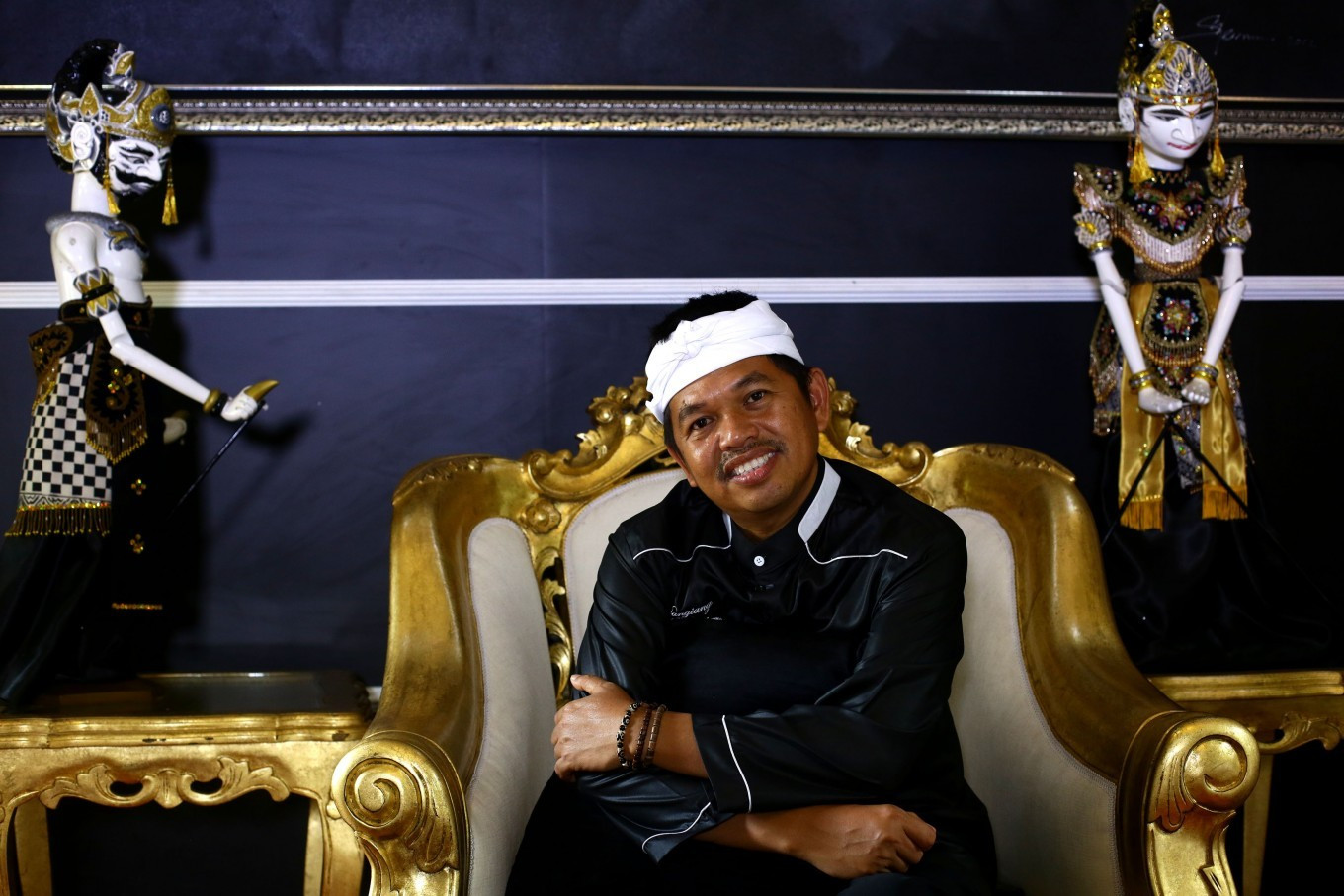News
Dedi Mulyadi: Sundanese prince’s road to glory
Tenggara Strategics June 7, 2025 Dedi Mulyadi.
Dedi Mulyadi.
Although the next presidential election is four years away, politicians across the country have already begun to boost their popularity in hopes of garnering enough support for a possible run. West Java Governor Dedi Mulyadi is among the politicians trying their luck.
The populist governor has made headwinds across the country, introducing controversial initiatives, including sending misbehaving high school students to military barracks, as well as the idea of requiring vasectomies for families to receive social aid. This is all while maintaining a “down-to-earth” approach to his constituents, reminiscent of a popular public figure in the country.
Dedi, better known by his constituents as “Kang Dedi” hails from the Gerindra Party after switching allegiance from Golkar in 2023, only to run for governor. The 54-year-old politician is Sundanese, the dominant ethnic group in West Java.
Although Indonesia is home to hundreds of ethnicities, political power has mainly been centralized around the prominent Javanese ethnic group. According to the 2010 census by the National Statistical Body (BPS), Javanese account for over 40 percent of the country’s total population.
From founding father Sukarno all the way to incumbent Prabowo Subianto, every Indonesian head of state has carried with them Javanese blood, cementing the unwritten social hierarchy of this nation. Third president, B.J Habibie, was thought to break the rule, but he was half-Javanese from his mother.
If Dedi eyes the presidency, his Sundanese ethnicity and adherence to Sunda Wiwitan, which is a folk belief system not officially recognized by the state, would make him a unique, potentially groundbreaking candidate.
It will be an interesting dynamic to observe in the coming presidential race whether the Indonesian electorate is willing to embrace Dedi’s ethnic and religious background, potentially paving the way to move past the historical power structures dominated by the Javanese.
Dedi has made strides in bridging this gap by drawing parallels to Javanese “folk” politician, former president Joko “Jokowi” Widodo. In a widely shared article titled “Habis Mulyono terbitlah Mulyadi” (After Mulyono comes Mulyadi) by Tempo, populist parallels between the two leaders have drawn nationwide attention.
Jokowi, referred to by his birth name Mulyono as an expression of public shaming, was known for his unconventional rise to power. From his days as Surakarta mayor and Jakarta governor, Jokowi distanced himself from the preppy politician look, instead adopting a humble persona, placing himself closer to the lay people.
Jokowi would often indulge in blusukan (impromptu visits) to lower-income neighborhoods and villages, engaging with the local community to listen to their grievances and provide handouts in the form of money or essential needs like rice and cooking oil. Many criticized the former president at the time for being performative and unethical; gaining grassroots political support while merely providing short-term solutions and ignoring the structural issues that perpetuate the impoverished conditions of the people.
Not only has Dedi adopted Jokowi’s tactic and subsequent critiques, but the governor has also introduced a novel approach in enhancing his efficacy by instrumentalizing social media to amplify his campaign. With over 150 million social media users in the country, the struggle to control information has turned into a battle over who can capitalize on the digital space and its algorithms.
Historically, a monopoly on information has been the key for leaders in the country to tighten their grip on power. During the New Order, Soeharto had full control over the national media landscape, being able to dictate the extent of his coverage. News reports that were deemed too critical of his authority would disappear as fast as they appeared.
Since his fall from grace in May 1998 and the ensuing reforms, the grip over information was fragmented across political elites who controlled mass-media companies. Now, however, with the prominence of social media applications like TikTok, YouTube, Facebook, X, and Instagram, the strategy has shifted. Politicians are no longer fighting to be covered by the press, rather, they possess the ability to narrate their own stories.
Dedi understands this new political reality. The governor has been reported to have a content team comprising seven videographers following him everywhere at all times. His YouTube channel has amassed close to eight million subscribers, posting two videos daily with an average view count in the millions. He also has about 3 million followers on Instagram and over 184,000 on TikTok.
Amid the critiques for his content-making, Dedi embraced his methods, claiming that it was better for him to be considered a “content” governor rather than a “lazy” governor. A recent survey published by Indikator Politik puts Dedi’s 100-day satisfaction rating at around 95 percent, followed by Yogyakarta Governor Sri Sultan Hamengkubuwono X at around 83 percent.
Dedi’s skyrocketing popularity is certainly noteworthy. However, much like Jokowi, his theatrics will become dangerous at some point. Throughout his presidency, Jokowi skillfully used his populist methods to justify his controversial political moves on the national stage, dispelling critics by citing his approval rating, which remained high even up until the end of his presidency.
The question now is whether Dedi, equipped with the same populist playbook and an even greater mastery of the media landscape, will continue down Jokowi’s path.
What we've heard
Dedi’s popularity hinges on various content he and his team created on social media. He manages two YouTube channels: Kang Dedi Mulyadi Channel and Lembur Pakuan Channel, setting a target of producing three pieces of content every day.

